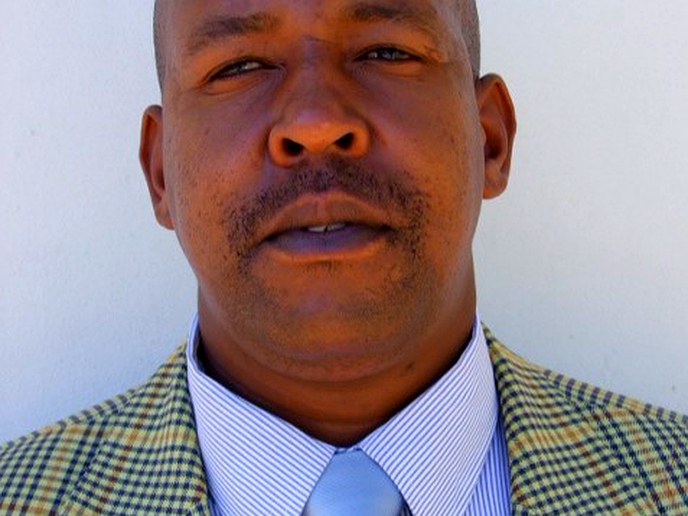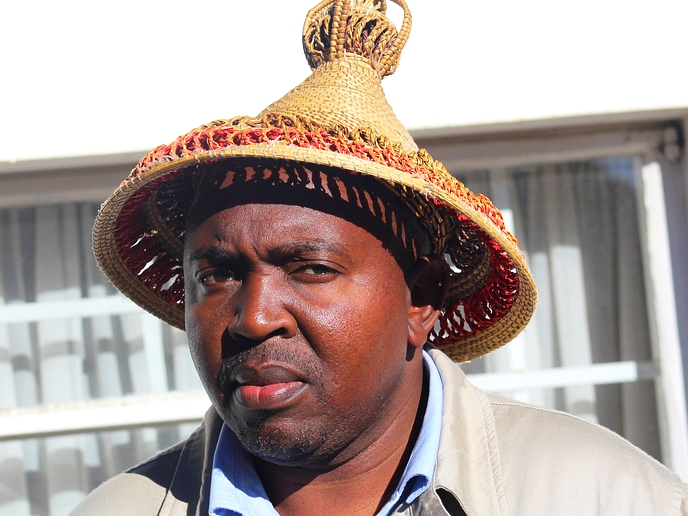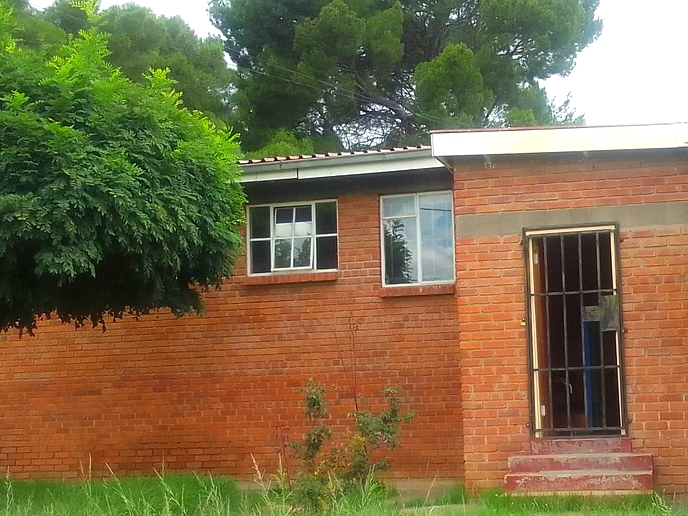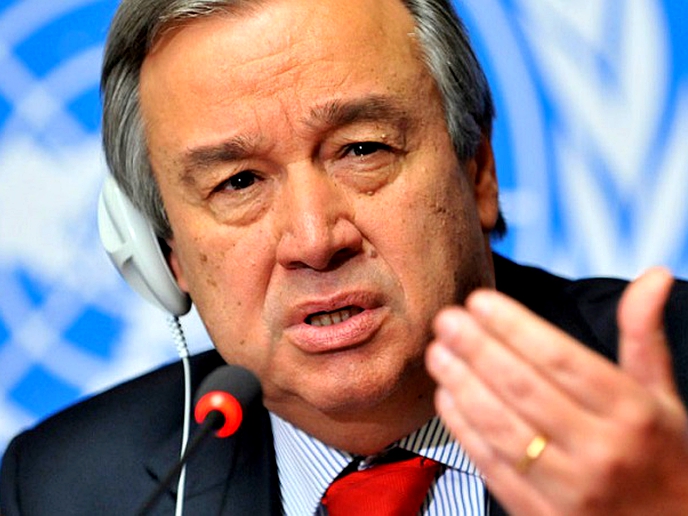MASERU – Lesotho’s poverty rate, measured at the national poverty line of Lesotho Maloti (LSL) 648.88 (2017 prices) per adult equivalent per month, fell about 7 percentage points over 15 years.
news
Dec. 14, 2019
KABELO MASOABI
3 min read
National poverty level improves
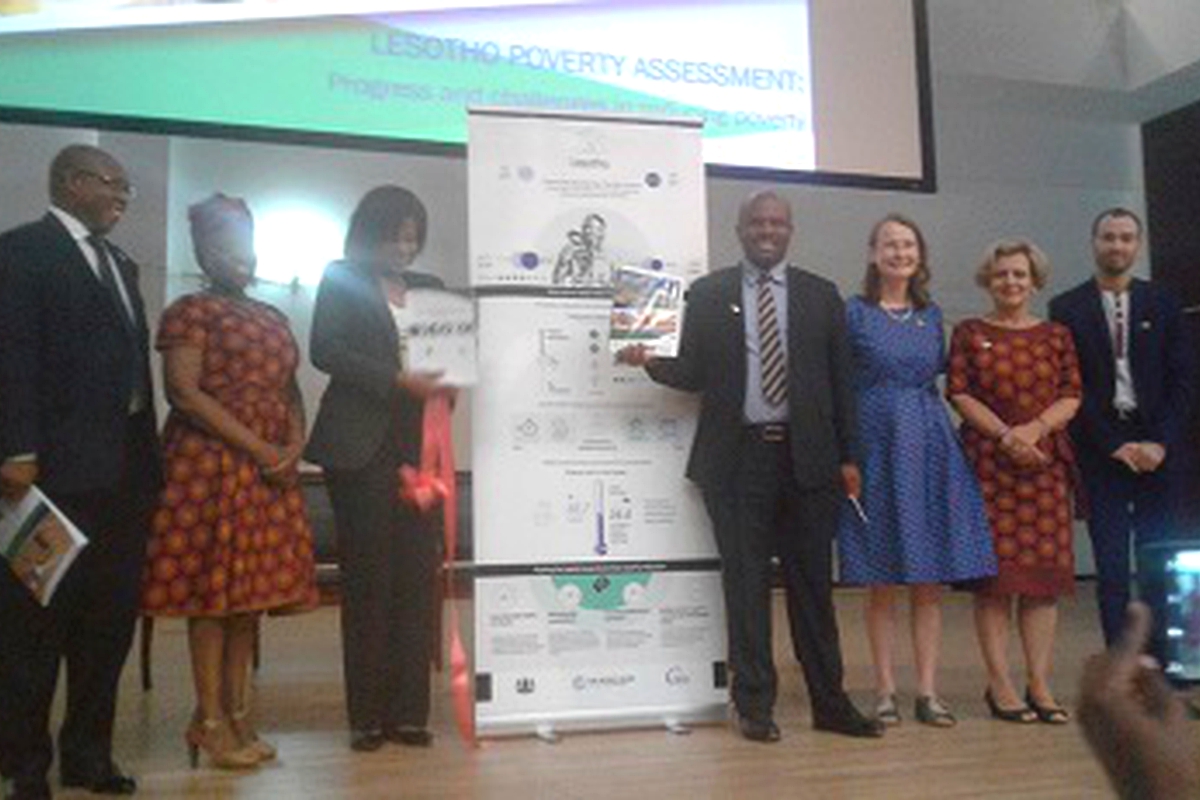
Government ministers at the handing over of the report
About 47 000 Basotho escaped poverty during this period as poverty rate fell from 56.6 percent in 2002 to 49.7 in 2017, according to the Lesotho Poverty Assessment report launched yesterday at the ‘Manthabiseng Convention Centre.
The analysis was compiled for the Government of Lesotho by the Bureau of Statistics, assisted financially and technically by the World Bank.
According to Celina Melato, Director at Bureau of Statistics, 23 percent of Basotho were poor at the international poverty line of US$190 per day in 2011; although this was reported to be low compared with other countries in Sub-Saharan Africa, it is high among middle-income countries and among the Southern African Custom Union (SACU) countries.
In the report it is indicated that urban areas recorded strong poverty reduction while rural areas’ poverty rate levels stagnated, adding to already a large urban-rural divide.
Enjoy our daily newsletter from today
Access exclusive newsletters, along with previews of new media releases.
The urban poverty rate decreased from 41.5 percent to 28.5 percent and in rural areas, muted consumption growth was accompanied by stagnation in poverty rates, which decreased marginally from 61.3 percent to 60.7 percent. This has resulted in a widening gap between rural and urban poverty.
“The reduction in urban poverty was driven by education and skill development and formal wage jobs and despite the contribution of education and skills to poverty reduction, Lesotho’s human capital outcomes are low considering its spending,” noted World Banks’ Senior Economist Victor Sulla during his representation of the same report at ‘Manthabiseng Conventional Centre.
He added, “despite the positive impact of higher outcome on poverty reduction, economic growth of the past 15 years had limited impact on job creation. As a result, unemployment is high, estimated at 28.0 percent overall and 43.2 percent among youths aged 15 to 24.”
Policies that improve human capital, addresses high unemployment, increases agricultural productivity, along with those that build resilience against economic and environmental shocks, would accelerate poverty reduction, recommended Mr Sulla.
Furthermore, he said, given that universal and free primary education has largely been attained, it is important to boost learning in primary education, increase secondary enrolment and completion among the poor and improve the general efficiency of spending on education.
Addressing high unemployment, Mr Sulla cites strengthening the private sector through demand and supply – side reforms as key to creating jobs.
He indicated improvements in agriculture productivity as possible to achieve through transitioning from subsistence to commercial agriculture, inclusive of an increased use of productivity-enhancing agricultural inputs and strengthening linkages between farmers and buyers.
“Commercialization can be prioritized largely in lowlands and foothills, while the highlands would benefit from resilient landscape, or afforestation, and farmer-managed natural regeneration to restore and replenish less fertile land. Investment in Climate Smart Agriculture offers the potential to transform Lesotho’s agriculture into a more productive, climate-resilient and low emissions sector,” he showed.
Nevertheless, Lesotho is facing large maize deficits because of two consecutive years of crop failure caused by severe adverse climatic conditions, according to the report; the government of Lesotho declared a state of famine in April 2002.
Traditionally a food deficit production country, the situation has been further exacerbated by a combination of factors that include severe weather conditions such as heavy rains, hailstorms, frost and tornadoes, but also limited available arable land, poor crop production, poor access to markets due to bad roads, high unemployment and poverty rates in the rural areas.
Ministers of Development Planning and Finance Mr Tlohelang Aumane and Dr Moeketsi Majoro respectively, and government officials and partners also attended the event.
Tailored for you



